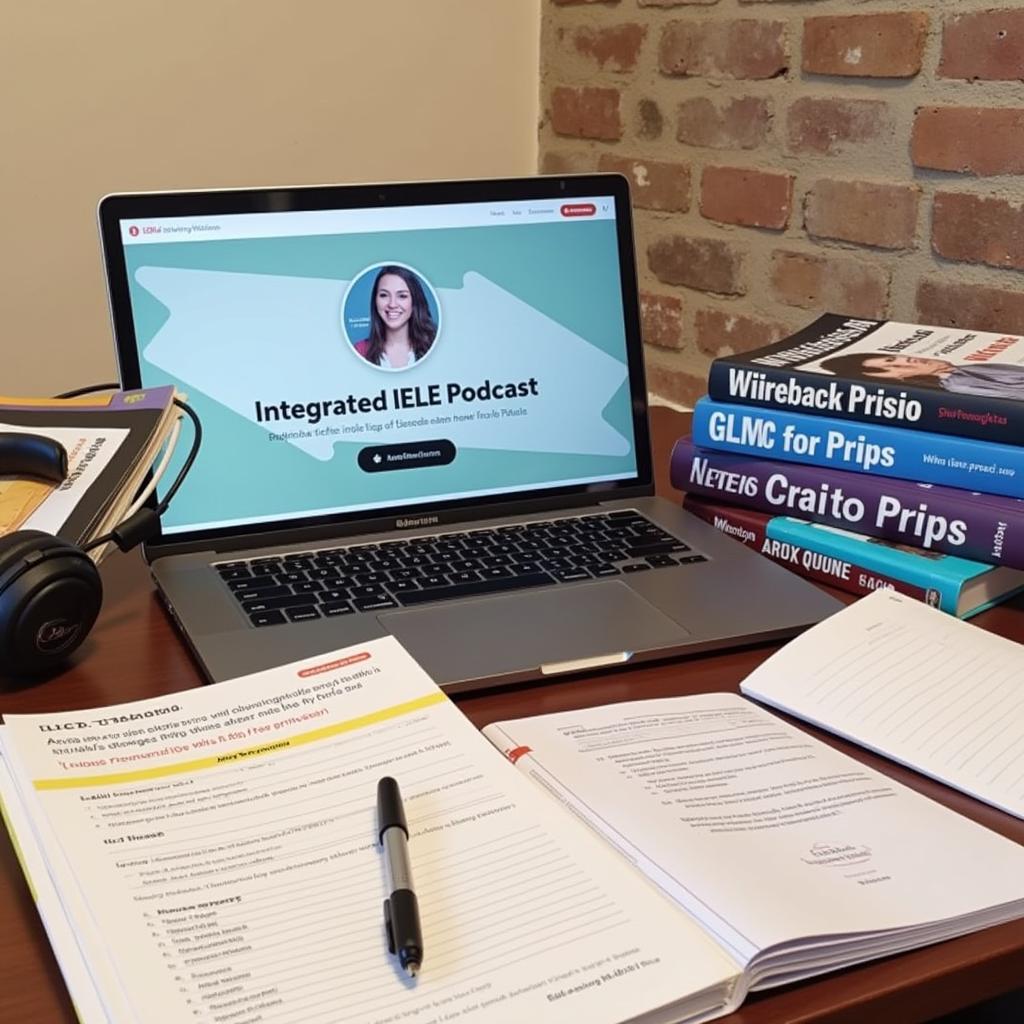Enhancing your fluency is crucial for IELTS success, and active listening is a powerful tool to achieve this goal. By engaging with English content actively, you can significantly boost your language skills and confidence. This article will explore effective strategies for improving fluency through active listening, helping you excel in your IELTS journey.
Understanding Active Listening in IELTS Context
Active listening goes beyond mere hearing; it involves full engagement with the audio material. For IELTS candidates, this skill is invaluable across all test sections, particularly in Listening and Speaking.
Why Active Listening Matters for IELTS
- Enhances comprehension
- Improves pronunciation and intonation
- Expands vocabulary in context
- Boosts overall confidence in English usage
Dr. Emma Thompson, a renowned IELTS expert, emphasizes, “Active listening is the cornerstone of language fluency. It trains your ear to native speech patterns and improves your ability to process information quickly.”
Effective Techniques for Active Listening
1. Shadowing
Shadowing involves repeating what you hear immediately after the speaker. This technique is particularly effective for improving pronunciation and intonation.
Steps to practice shadowing:
- Choose a short audio clip (1-2 minutes)
- Listen once without repeating
- Play again, this time repeating each phrase immediately after hearing it
- Focus on mimicking the speaker’s intonation and rhythm
2. Focused Note-taking
Taking notes while listening helps maintain concentration and improves information retention. This skill is directly applicable to the IELTS Listening test.
Tips for effective note-taking:
- Use abbreviations and symbols
- Focus on key information (who, what, when, where, why, how)
- Practice with various accents and speaking speeds
3. Prediction and Confirmation
Before listening, predict the content based on the topic or title. As you listen, confirm or adjust your predictions. This engages your brain actively with the material.
Dr. Thompson notes, “Prediction activates prior knowledge, making it easier to process new information. It’s a powerful tool for IELTS preparation.”
Incorporating Active Listening into Daily Routine
To truly improve fluency, consistent practice is key. Here are ways to integrate active listening into your daily life:
-
Podcast Power: Improving speaking skills with podcasts can significantly enhance your fluency. Choose podcasts on topics that interest you and align with IELTS themes.
-
News Broadcasts: Listen to English news channels daily. Start with 5-10 minutes and gradually increase the duration.
-
TED Talks: These provide excellent practice with diverse topics and speakers, mirroring the variety you’ll encounter in IELTS.
-
Audiobooks: Listen to audiobooks while following along with the text to improve your reading and listening skills simultaneously.
-
Language Exchange: Improving fluency through conversation with native speakers or fellow learners can complement your active listening practice.
 IELTS student practicing active listening with various media
IELTS student practicing active listening with various media
Advanced Active Listening Strategies for IELTS
1. Transcription Practice
Transcribe short audio clips word-for-word. This intensive exercise sharpens your listening skills and helps you catch nuances in speech.
2. Accent Familiarization
IELTS features various English accents. Expose yourself to different accents through developing fluency through regular discussions with speakers from diverse backgrounds.
3. Critical Analysis
After listening, summarize the main points and analyze the speaker’s argument or perspective. This deepens your engagement with the content and improves critical thinking skills.
Measuring Progress and Staying Motivated
Tracking your improvement is crucial for maintaining motivation. Consider these methods:
- Regular self-assessment tests
- Keeping a listening journal
- Recording yourself speaking about what you’ve listened to
- Setting specific, achievable goals (e.g., understanding 80% of a news broadcast)
Dr. Thompson advises, “Consistency is key in active listening practice. Even 15 minutes daily can lead to significant improvements over time.”
Combining Active Listening with Other IELTS Skills
For a holistic approach to IELTS preparation, integrate active listening with other language skills:
-
Speaking: How to practice fluency through storytelling can be enhanced by incorporating vocabulary and phrases from your listening practice.
-
Writing: Use ideas and arguments from podcasts or talks as inspiration for IELTS Writing tasks.
-
Reading: Compare written articles with their audio versions to improve comprehension across formats.
 IELTS preparation using an integrated approach
IELTS preparation using an integrated approach
Conclusion
Improving fluency through active listening is a powerful strategy for IELTS success. By incorporating these techniques into your daily routine and combining them with other language skills, you’ll see significant improvements in your overall English proficiency. Remember, consistency is key. Start with small, manageable sessions and gradually increase your practice time. With dedication and the right approach, you’ll be well on your way to achieving your desired IELTS score.
FAQs
-
How long should I practice active listening each day for IELTS preparation?
Start with 15-20 minutes daily and gradually increase to 30-45 minutes as your stamina improves. -
Can active listening help with the IELTS Speaking test?
Absolutely! Active listening improves pronunciation, intonation, and vocabulary, all crucial for the Speaking test. -
What types of audio materials are best for IELTS active listening practice?
Vary your sources, including podcasts, news broadcasts, academic lectures, and casual conversations to cover all aspects of IELTS. -
How can I stay motivated with my active listening practice?
Set specific goals, track your progress, and reward yourself for achievements. Also, choose interesting content to keep engagement high. -
Is it better to use transcripts while listening or to challenge myself without them?
Start with transcripts to build confidence, then gradually reduce their use to challenge yourself and simulate test conditions. -
How can I improve my note-taking skills for the IELTS Listening test?
Practice taking notes while listening to various audio sources, focusing on key information and developing your own shorthand system.


